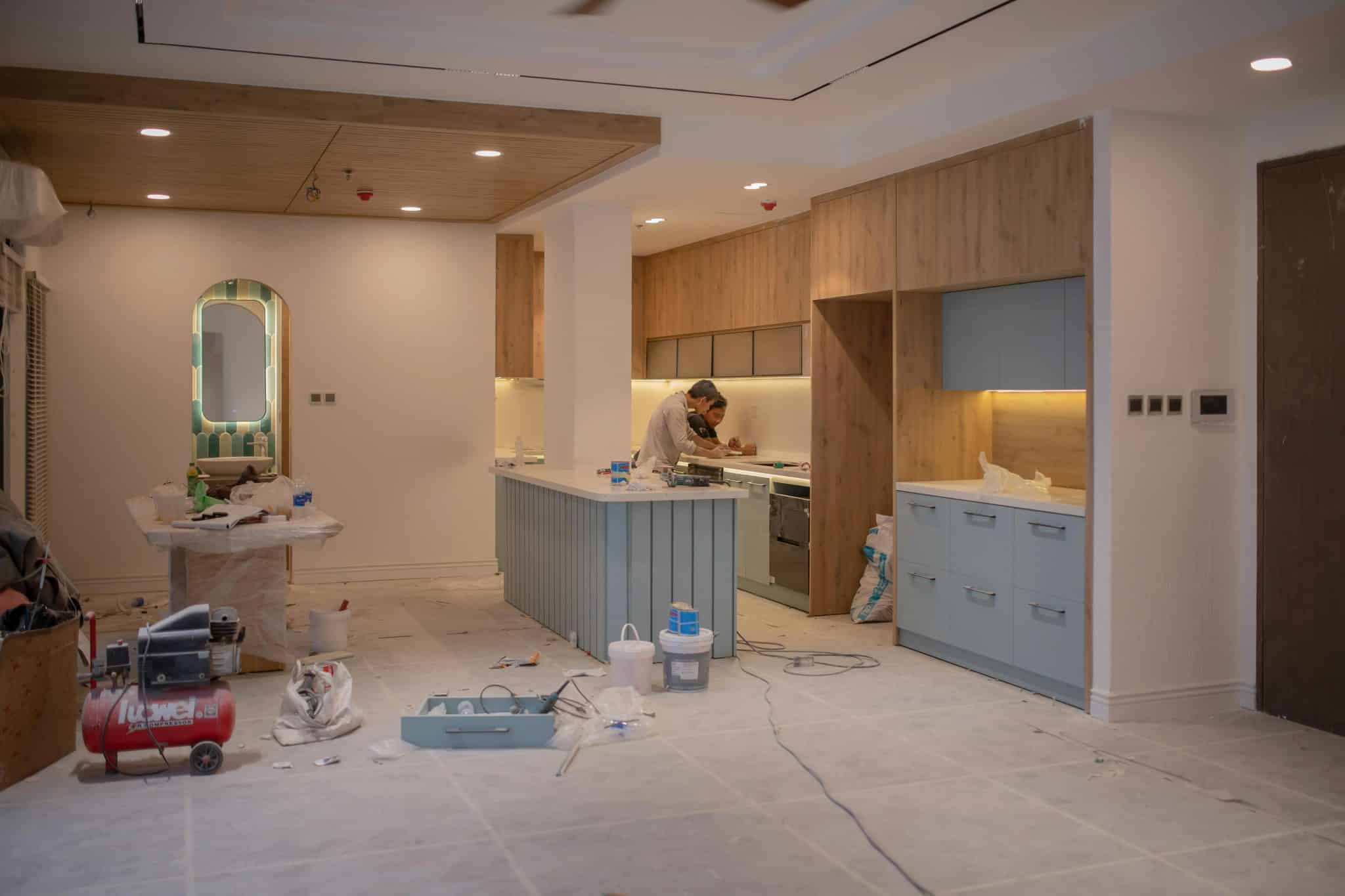Planning a home renovation but feeling lost when contractors hand you confusing quotes with unclear pricing?
Most homeowners receive renovation quotes that look like a foreign language, filled with vague line items, hidden costs, and technical jargon that makes comparison nearly impossible.
What if you could decode every renovation quote like a pro, spot red flags before they become costly mistakes, and confidently choose the right contractor for your project? Understanding quote breakdowns, material costs, and labor estimates puts you in control of your renovation budget.
This complete guide walks you through everything you need to know about getting accurate renovation quotes and reading them correctly. You’ll learn exactly what questions to ask contractors, which details matter most, and how to avoid common pricing traps.
Ready to take charge of your renovation project?
Understanding Renovation Quotes vs. Estimates
When planning your renovation, it’s essential to understand the distinction between quotes and estimates, as these terms are frequently misused by both homeowners and contractors.
A quote is a fixed price for your entire project that becomes legally binding once you accept it, meaning the contractor cannot charge you more than the stated amount, even if unexpected issues arise during construction.
On the other hand, an estimate is simply an approximate cost that can change significantly as work progresses, leaving you vulnerable to budget overruns and surprise expenses.
Key differences include:
- Legal protection: Quotes offer binding agreements, while estimates provide no cost guarantees
- Budget certainty: Fixed quotes help you plan finances accurately, but estimates can fluctuate by 20-50%
- Project scope: Quotes detail specific work included, estimates often remain vague about deliverables
Smart homeowners always request written quotes rather than verbal estimates because written documentation protects both parties from misunderstandings and provides clear legal recourse if disputes arise.
Without written quotes, you risk facing additional charges, scope creep, and lengthy arguments about what was originally agreed upon, potentially turning your dream renovation into a financial nightmare.
When to Request a Renovation Quote?
1. Complete your design plans first: Wait until you have finalized floor plans, material selections, and fixture choices before contacting contractors, as incomplete designs lead to inaccurate pricing and costly changes later.
2. Secure permits and approvals: Obtain all necessary building permits, HOA approvals, and city inspections before requesting quotes, since permit requirements can significantly impact project scope and costs.
3. Define your project scope clearly: Know exactly what work you want completed, from demolition to final finishes, so contractors can provide accurate pricing without guesswork or assumptions.
4. Set your budget range: Establish a realistic budget based on research and financing options, allowing contractors to recommend appropriate materials and methods that fit your financial constraints.
5. Avoid rush timing: Don’t request quotes when you’re unprepared or under pressure, as premature quotes often miss important details and result in disputes, change orders, and budget overruns during construction.
Key Components of a Renovation Quote
A comprehensive renovation quote contains six essential elements that protect your interests and ensure project success.
1. Scope of Work
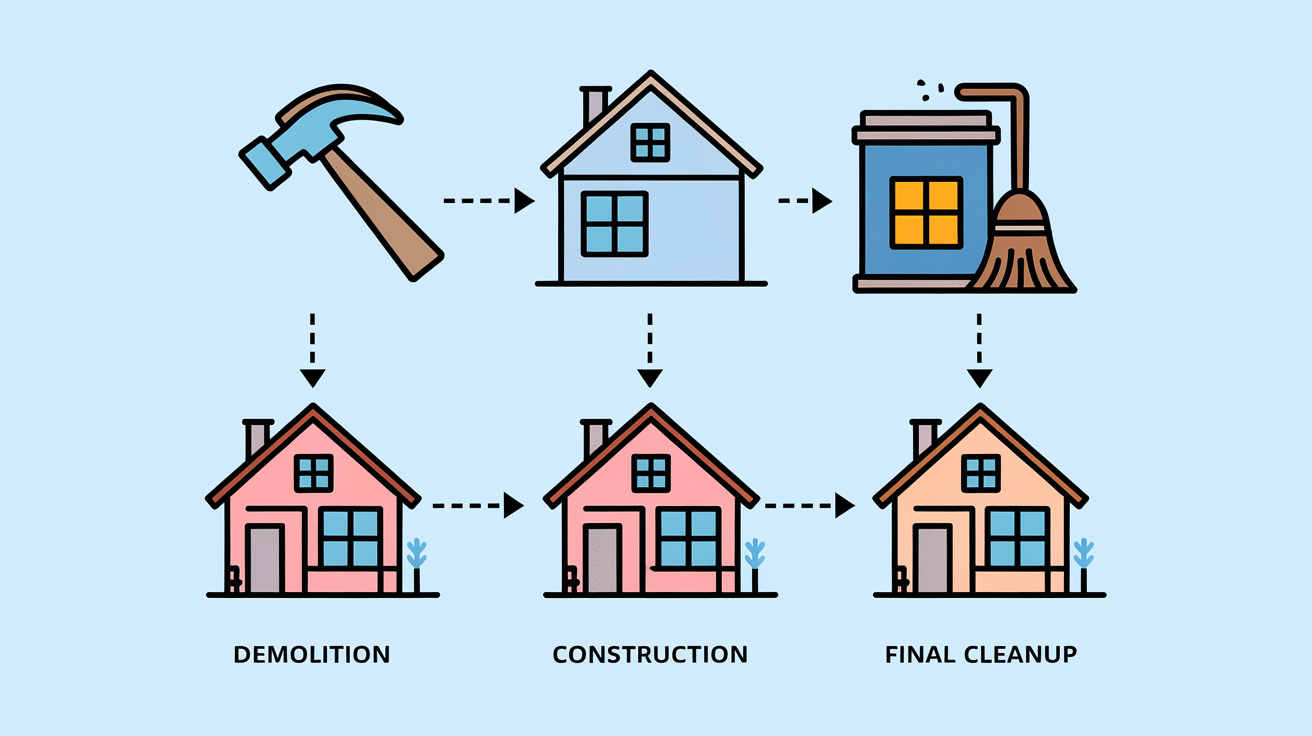
The scope of work section outlines every task your contractor will perform, from initial demolition to final cleanup. This section should specify who is responsible for what, including whether you’ll handle certain tasks like painting or if the contractor covers everything.
A detailed scope helps prevent misunderstandings about what is included in your project. Always ensure this section mentions specific rooms, fixtures, and any work exclusions to avoid disputes later.
2. Material Specifications
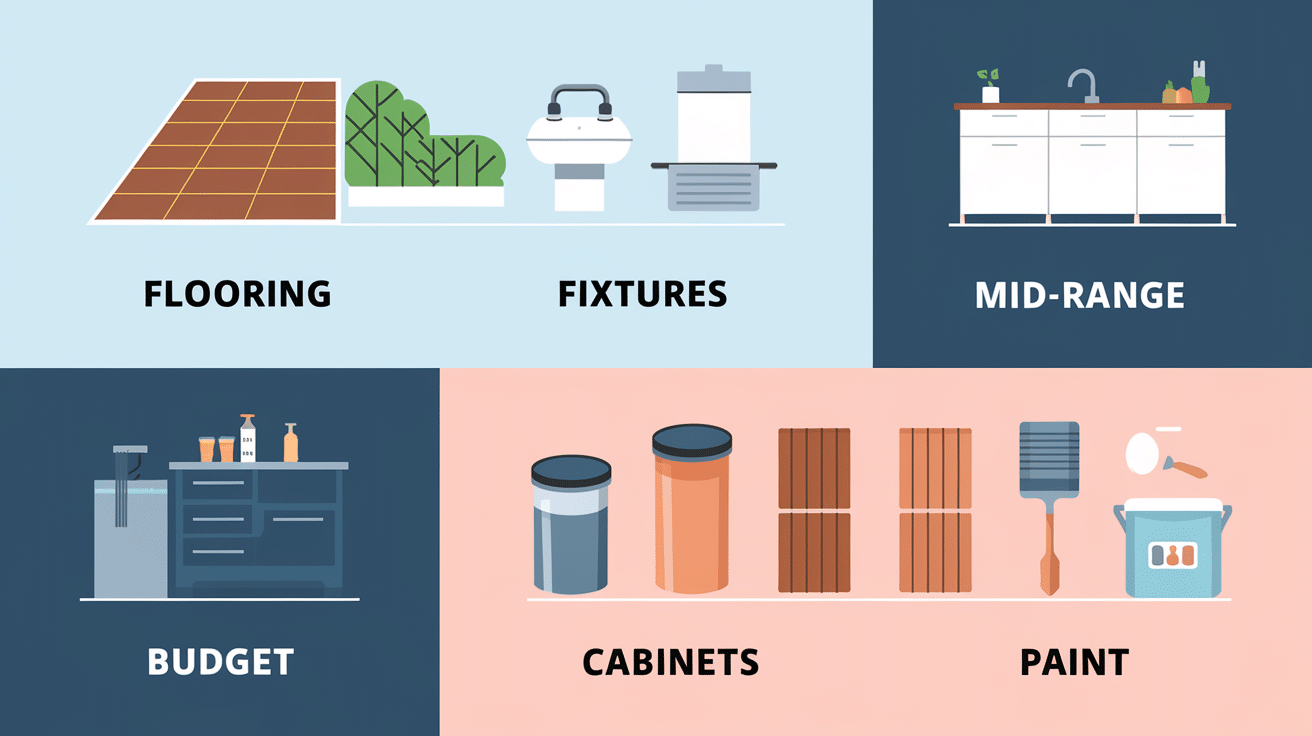
Material specifications list the exact brands, models, and quantities of everything from flooring to fixtures that will be used in your renovation.
This section protects you from contractors substituting cheaper materials without notice. Quality grades, color specifications, and material allowances should be clearly stated. If the quote says “contractor’s choice” for materials, request specific brands and models to avoid receiving lower-quality substitutes.
3. Labor Costs

Labor costs should detail hourly rates, number of workers, and estimated hours for each phase of your project. This section must identify any subcontracted work, such as electrical, plumbing, or HVAC services.
Transparent labor breakdowns help you understand where your money goes and make it easier to compare quotes from different contractors. Watch for vague terms like “labor included” without specific details.
4. Project Timeline
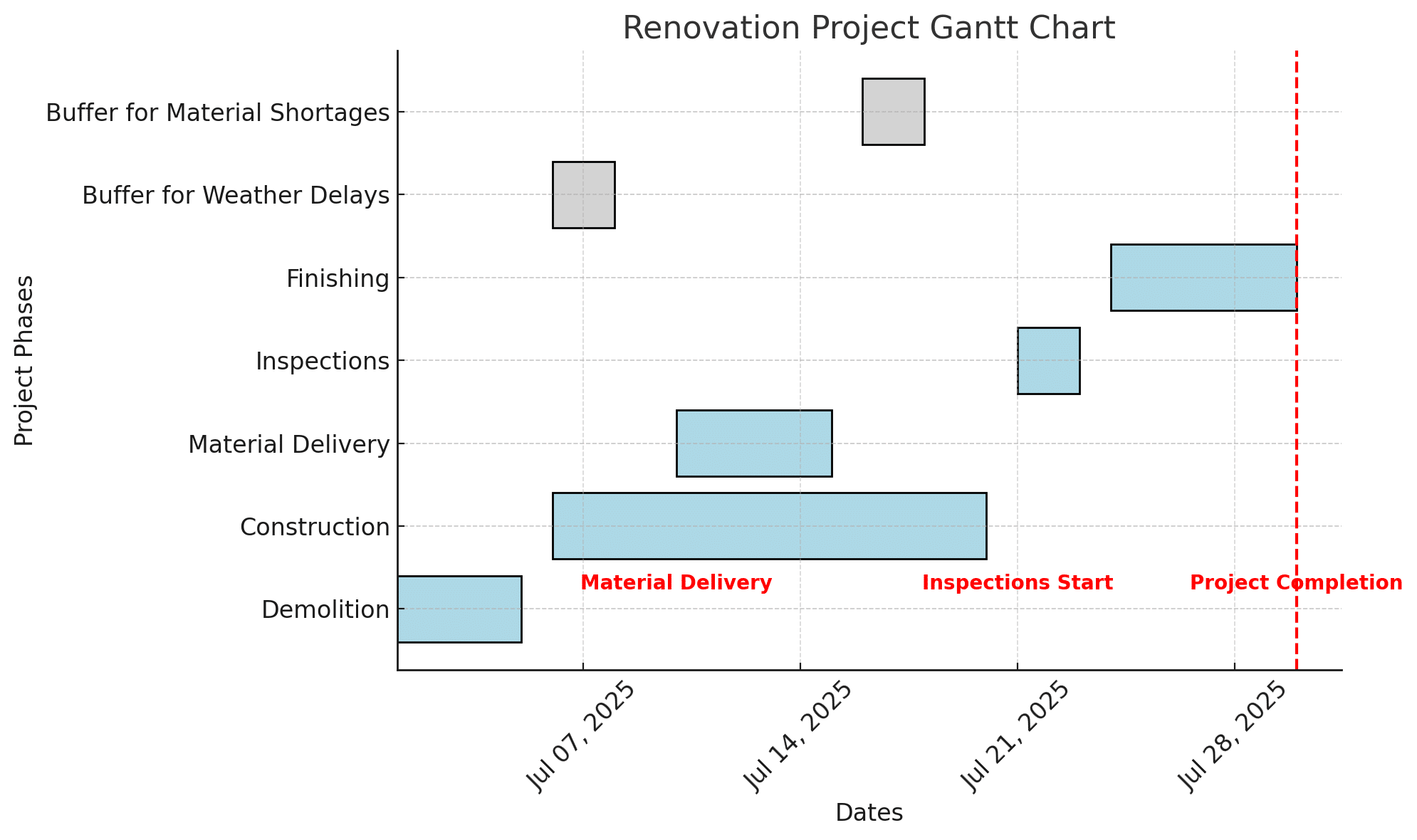
The timeline section provides realistic start and finish dates along with major milestones throughout your renovation. A good timeline accounts for material delivery delays, inspection schedules, and weather considerations.
Fixed completion dates with penalty clauses protect you from indefinite delays. Be wary of contractors who promise unrealistic timelines or refuse to commit to specific dates.
5. Payment Terms
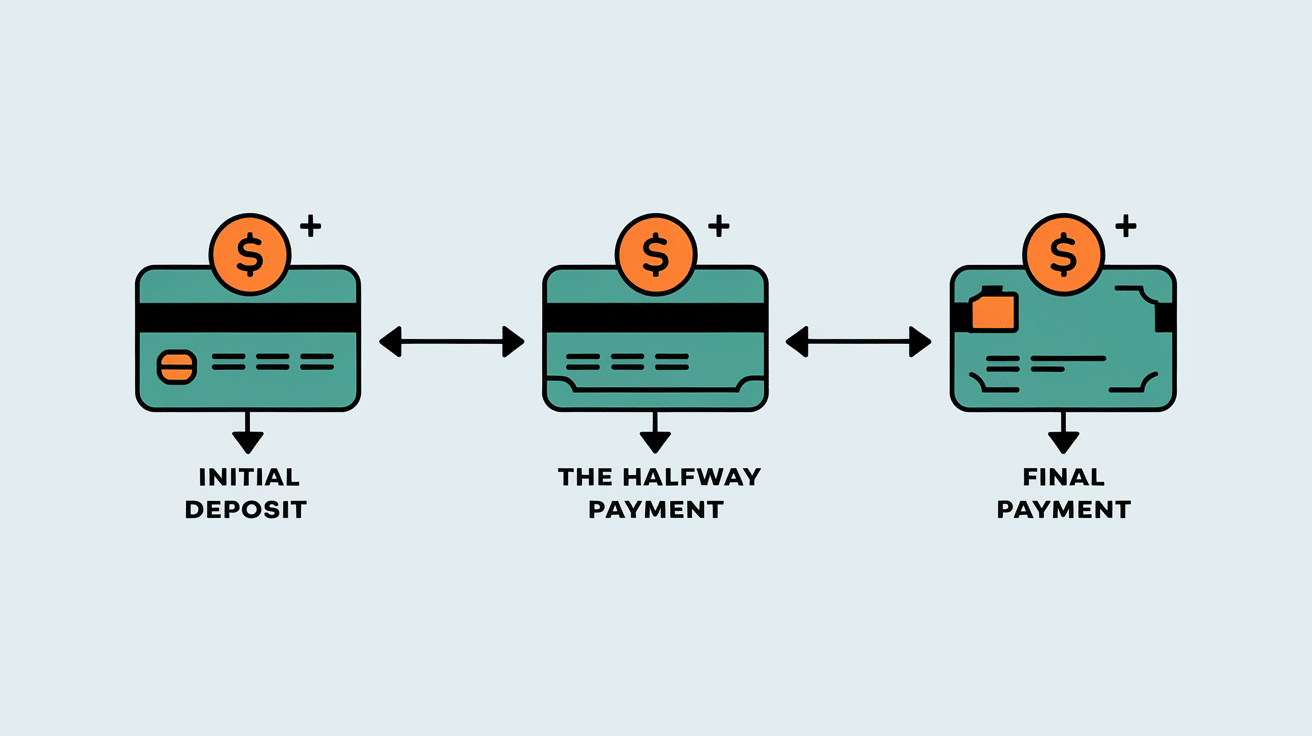
Payment terms outline when and how much you’ll pay throughout the project, typically tied to completion milestones rather than upfront payments.
Never pay large sums upfront. Legitimate contractors request minimal deposits and final payments upon satisfactory completion. This section should specify acceptable payment methods and any penalties for late payments from either party.
6. Contingency Plans
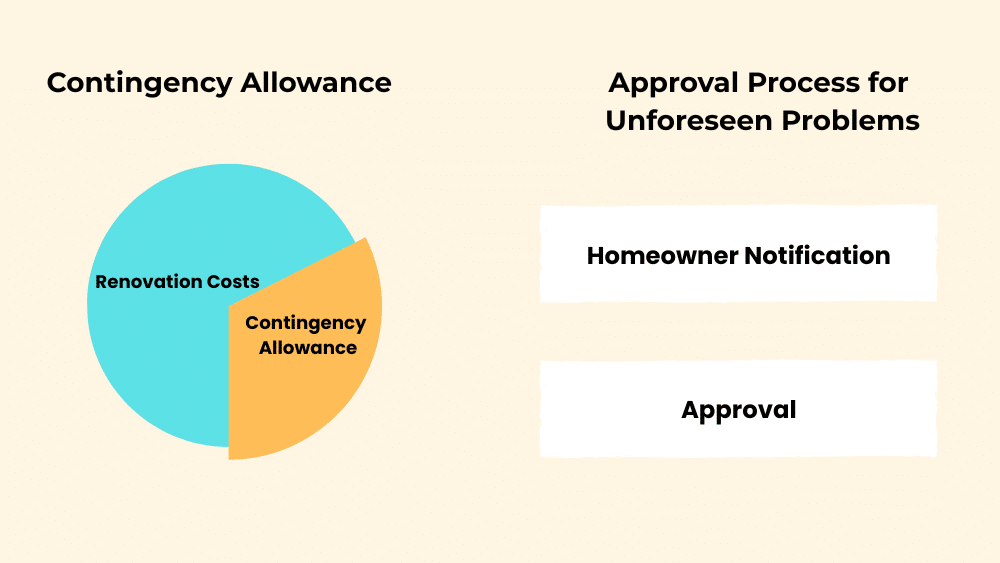
Contingency provisions address how unexpected issues will be handled financially and procedurally during your renovation. A typical contingency allowance ranges from 10-20% of the total project cost for unforeseen problems like hidden damage or code compliance issues.
This section should specify approval processes for additional work and how cost overruns will be communicated and authorized before proceeding.
How to Obtain Accurate Renovation Quotes?
1. Provide Detailed Information: Share comprehensive project plans, material preferences, and specific requirements with potential contractors, including architectural drawings, inspiration photos, and detailed specifications to ensure they understand your exact vision and can price accordingly.
2. Request Site Visits: Insist that contractors visit your property in person to assess existing conditions, measure spaces, and identify potential challenges like structural issues, electrical problems, or access difficulties that could affect pricing and timeline estimates.
3. Ask the Right Questions: Inquire specifically about what’s included and excluded in the quote, potential additional costs for permits or unexpected finds, warranty coverage, and cleanup responsibilities to avoid surprises during the project.
4. Get Multiple Quotes: Obtain at least three detailed quotes from licensed contractors to compare pricing, approaches, and timelines, ensuring you receive competitive rates and can identify any unusually high or suspiciously low estimates.
5. Clarify Payment Structure: Understand the payment schedule, deposit requirements, and final payment terms before signing any agreement, ensuring payments are tied to project milestones rather than arbitrary dates or large upfront demands.
Common Pitfalls to Avoid for Renovation Quote
- Underestimating Costs: Failing to budget for unforeseen expenses like hidden structural damage, code upgrades, or permit fees can derail your renovation financially, so always add 15-20% contingency funds to your total project budget.
- Lack of Detailed Documentation: Accepting vague quotes with terms like “miscellaneous materials” or “labor included” without specific breakdowns leads to disputes, cost overruns, and poor quality work that doesn’t meet your expectations.
- Ignoring Legal Aspects: Proceeding without formal written contracts, proper licensing verification, or insurance documentation leaves you vulnerable to liability issues, substandard work, and no legal recourse if problems arise.
- Choosing Based on Price Alone: Selecting the lowest bid without considering contractor experience, material quality, or timeline feasibility often results in delayed projects, inferior workmanship, and additional costs to fix mistakes.
- Skipping Reference Checks: Failing to contact previous clients, verify completed projects, or check online reviews can lead to hiring unreliable contractors with poor work history, communication problems, or incomplete project records.
Conclusion
Getting accurate renovation quotes requires preparation, patience, and attention to detail. Remember that a quote protects both you and your contractor from misunderstandings and budget surprises.
Always request written documentation, compare multiple quotes, and verify contractor credentials before making your final decision.
The difference between a successful renovation and a costly nightmare often comes down to how well you understand your quote. Take time to review every component, ask questions about unclear items, and ensure all project details are documented in writing.
Ready to start your renovation project with confidence? Use this guide to evaluate quotes properly and choose the right contractor for your needs. Have you received confusing renovation quotes in the past?
Share your experiences in the comments below and help other homeowners avoid common mistakes.







